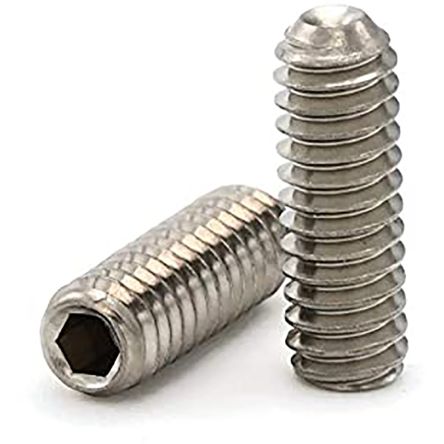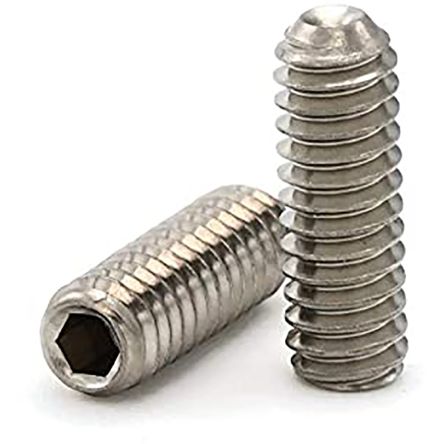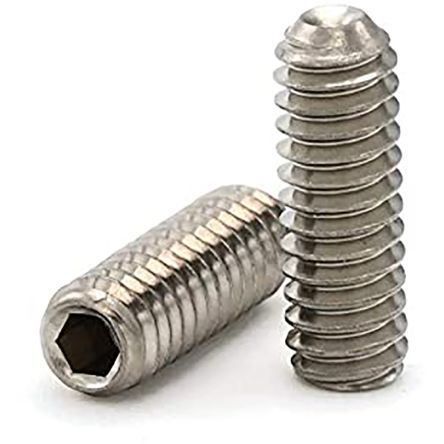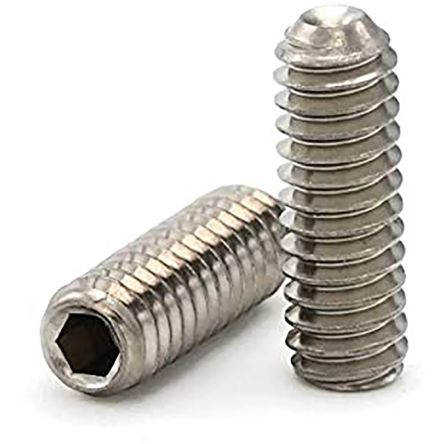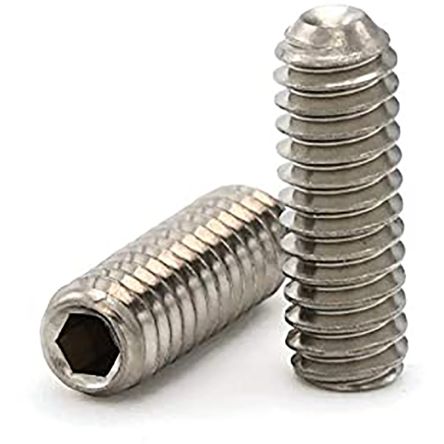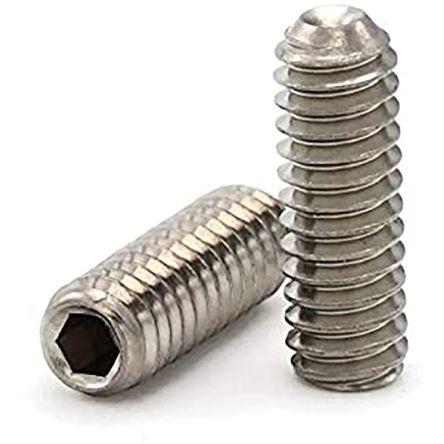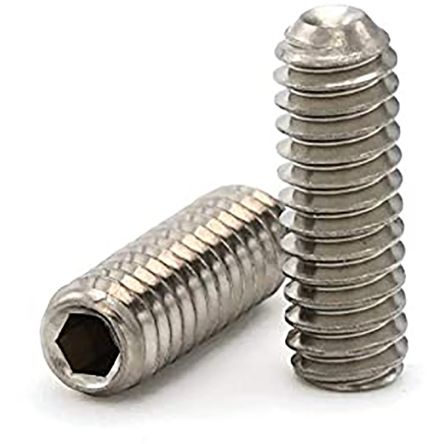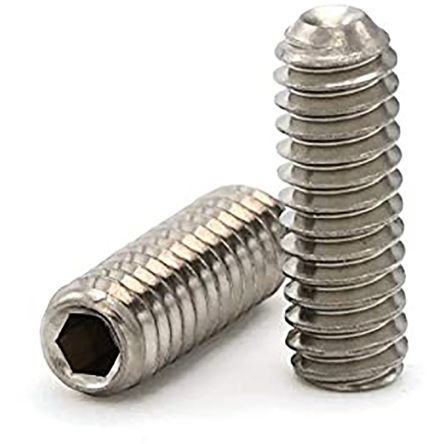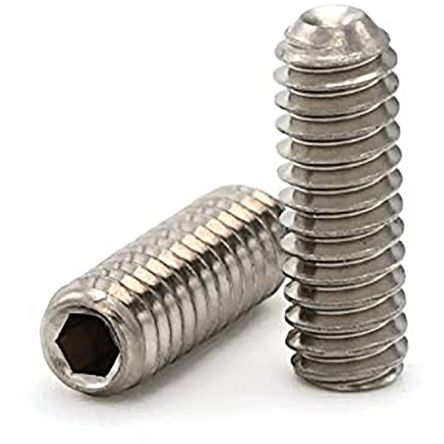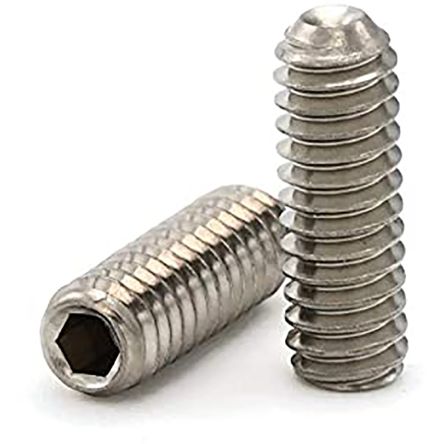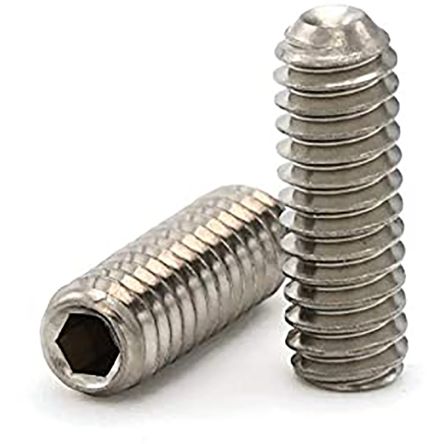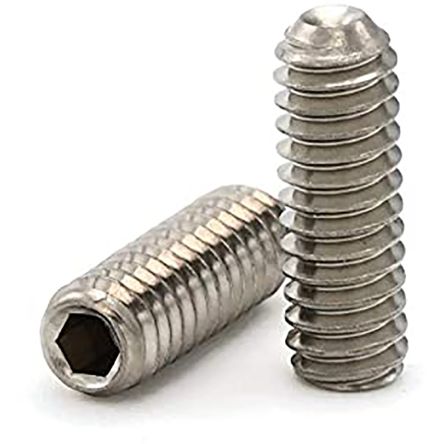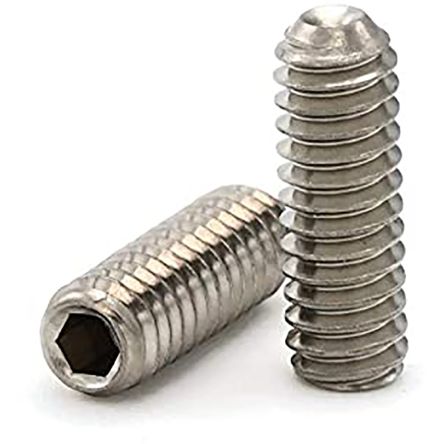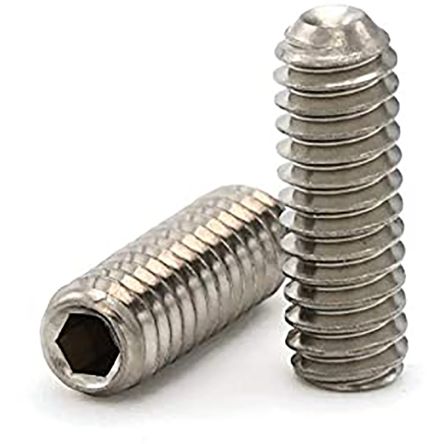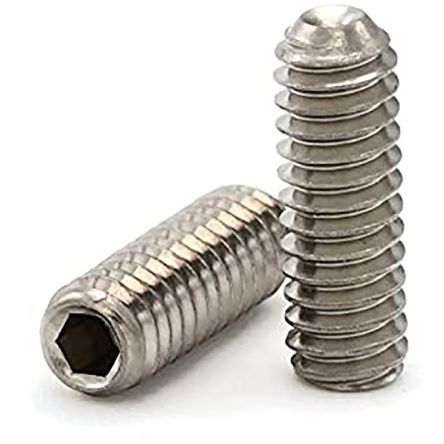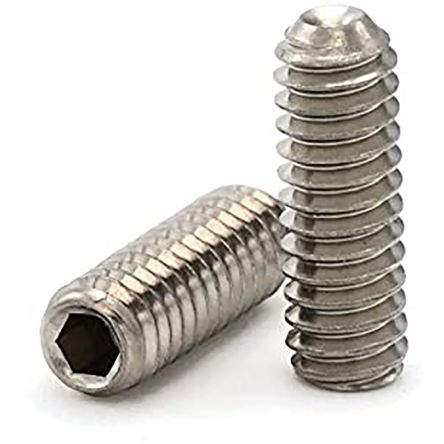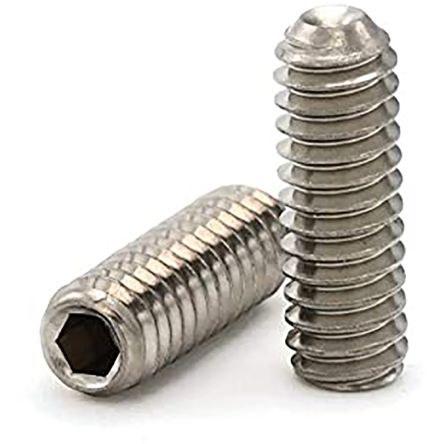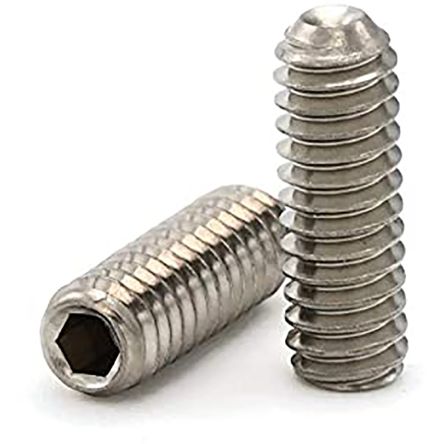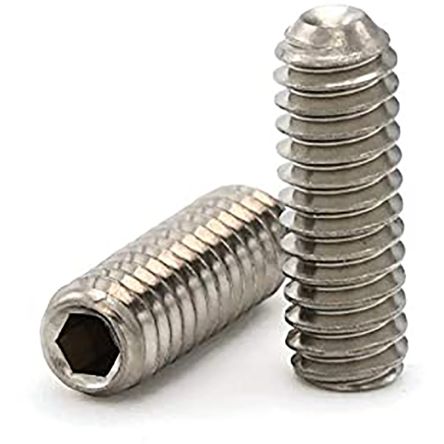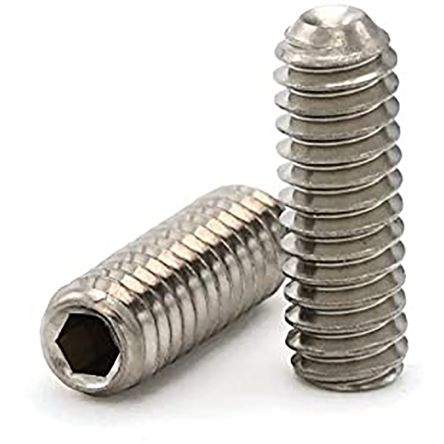- Automation & Control Gear
- Cables & Wires
- Enclosures & Server Racks
- Fuses & Circuit Breakers
- HVAC, Fans & Thermal Management
- Lighting
- Relays & Signal Conditioning
- Switches
- Batteries & Chargers
- Connectors
- Displays & Optoelectronics
- ESD Control, Cleanroom & PCB Prototyping
- Passive Components
- Power Supplies & Transformers
- Raspberry Pi, Arduino, ROCK, STEM Education & Development Tools
- Semiconductors
Grub Screws
A grub screw, also known as a set screw is used for securing sliding or moving components in place. Grubs screws have threaded inserts instead of tapering screw grooves. The screw is passed through a threaded hole in the outer object and then tightened against the inner object to prevent it from moving relative to the outer object. Grub screws are commonly used to secure a pulley or a gear to a shaft or for attaching a handle or cam to a spindle. You can learn more in our comprehensive grub screws guide and our complete set screws guide.
These screws can be made from materials such as steel, stainless steel, nylon, brass and ceramic and are available in a wide range of very small sizes.
Types of Grub Screw
Grub Screws are divided into two types, a hexagon head (sometimes called a hexagon set screw) and a socket head.
Hexagon Head Grub Screw have a hexagonal head with a thread that extends all the way to the head.
Socket Head Drive Grub Screws are headless with recessed drive ports into which you can insert a tool such as a hexagonal Allen key. When used the entire screw is encased in the material it is fastening without any exposed screw or bolt heads making them ideal for mechanical systems where metal surfaces rub together or to provide an aesthetic finish. These are generally more corrosion resistant, can be tightened using more torque and are secure and difficult to remove.
Grub Screw and Set Screw Drive Types
Grub screws have different drive types, including a straight slot for a standard flat screwdriver, a hex socket, a square socket, an external hex, an external square or a Bristol spline.
